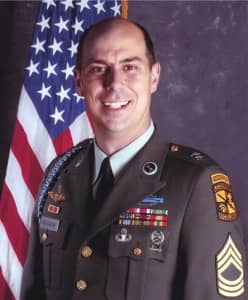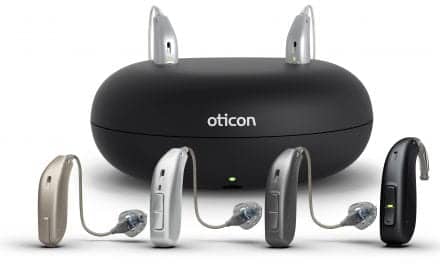The Veterans Mobility Safety Act of 2015 (HR 3471), which authorizes the Department of Veterans Affairs (VA) to hire hearing instrument specialists, has passed the US House of Representatives, but with important revisions to Section 4 that deals with the “Appointment of Licensed Hearing Aid Specialists in the Veterans Health Administration.” These revisions were hailed by the American Speech-Language-Hearing Association (ASHA), the American Academy of Audiology (AAA) and the Academy of Doctors of Audiology (ADA) as an important first step in “preventing hearing aid dispensers from expanding their scope of practice within the VA system and ensuring that veterans continue to receive the highest standard of audiologic care provided by, and under the direction of, qualified audiologists,” according to the organizations in a joint press statement.

IHS says the bill will significantly increase access and quality—and decrease wait times—for veterans seeking hearing healthcare through the VA. The bill had been amended by the House Veterans Affairs Committee on May 18 to incorporate HR 353, “The Veterans Access to Hearing Health Act of 2015.” The final language was strategically negotiated over the course of approximately 6 months between stakeholders, and IHS reports that it retains the original goals of enabling the VA to hire hearing aid specialists to provide hearing services and encourage their use in the contract network (the VA has contended it previously had this authority). On September 14, 2016, the hearing aid specialist language was offered as an amendment by Rep Duffy to HR 5620, the “VA Accountability First and Appeals Modernization Act of 2016”, an omnibus bill that incorporates a series of reforms aimed at the VA. The amendment was adopted and, later that evening, HR 5620 was passed by the full House of Representatives, giving IHS legislation another vehicle for potential consideration by the US Senate. IHS reports it is now turning its full focus to advancing its Senate “Fit to Serve” bill, S 564, the “Veterans Hearing Aid Access and Assistance Act” sponsored by Senators Jerry Moran (R-KS) and Jon Tester (D-MT), which is awaiting action in the Senate Veterans Affairs Committee.
“The adoption of HR 3471 by the House marks a significant day for our veterans with hearing loss and their families,” said IHS Immediate Past-president Thomas Higgins, ACA, BC-HIS, and Navy Veteran in a press statement. “For too long, veterans have been needing a solution to the long wait times and distances to travel to VA facilities for hearing services that could be easily provided by hearing aid specialists either at VA clinics or in local settings. We applaud our champions in Congress for moving this important legislation forward and for their commitment to our veterans.”
“At a time when the VA is desperate for some good news, this is an opportunity for Congress and the VA to get it right,” said Congressman Duffy. “Veterans in my district are driving up to 90 miles one way just to get hearing services from an audiologist at the Veterans Administration. Under current law, the VA is only allowed to use audiologists. This legislation aims to rectify this problem by adding hearing aid specialists to the list of providers the VA is allowed to use. This will provide greater freedom, flexibility, and more options for the men and women who have served our great nation.”
Revised language for HR 3471. As noted above, the original language in HR 3471 was amended to reflect the concerns of ASHA, ADA, and AAA, collectively referred to as the “Audiology Organizations” in their joint press statement. While these organizations continue to maintain that the Veterans Health Administration has the authority to hire hearing instrument specialists, they say the new language of the bill provides “congressional intent” on the role these professionals can play in the VA, restricting their job duties “to reflect their limited training and education,” according to the statement.
Specifically, the language now contained in Section 4 of the Veterans Mobility Safety Act (HR 3471) includes the following language:
(b) REQUIREMENTS.—With respect to appointing hearing aid specialists under sections 7401 and 7402 of title 38, United States Code, as amended by subsection (a), and providing services furnished by such specialists, the Secretary shall ensure that—
(1) a hearing aid specialist may only perform hearing services consistent with the hearing aid specialist’s State license related to the practice of fitting and dispensing hearing aids without excluding other qualified professionals, including audiologists, from rendering services in overlapping practice areas;
(2) services provided to veterans by hearing aid specialists shall be provided as part of the non-medical treatment plan developed by an audiologist; and
(3) the medical facilities of the Department of Veterans Affairs provide to veterans access to the full range of professional services provided by an audiologist.
(c) CONSULTATION.—In determining the qualifications required for hearing aid specialists and in carrying out subsection (b), the Secretary shall consult with veterans service organizations, audiologists, otolaryngologists, hearing aid specialists, and other stakeholder and industry groups as the Secretary determines appropriate.
According to the Audiology Organizations, these requirements “recognize and preserve the important role of audiologists as clinical doctors, duly responsible for the development and oversight of patients’ audiologic plans of care, and limit the role of hearing aid dispensers to that of the fitting and dispensing of hearing aids only.”
The Senate companion bill, S 564, does not contain the revised language advocated by ASHA, ADA, and AAA. The Audiology Organizations report that they will be fighting this legislation or working similarly to restrict the language in any subsequent Senate companion bill to HR 3471.
For more on the “Fit to Serve” bill and the issues surrounding it, see David Kirkwood’s HearingHealthMatters blog post that was published in the May 2014 Hearing Review.
Article revised September 15, 2016.







February 26, 2018, I received my VA Resound Hearing Aids October 2014 from the Hearing Aid Company of Texas in Corpus Christi, Texas. I went to get my hearing aids serviced however they informed me that they were no longer authorized to provide this service due to changes in our local VA and that I was eligible to receive a new pair every three years. I’ve contacted my local VA several times to get authorization but no one there seems to understand how the procedure works. According to H.R. 3471 Veterans Mobility Act of 2016, I should have received authorization from my local VA to get this matter resolved by the Hearing Aid Company of Texas via their licensed technician. Your help in this matter will be greatly appreciated. Respectfully, Leonard W. Tarpley, Veteran, US Army 1962-1965. Thank you!
I’m a BC-HIS! I work with veterans all of the time to fix their issues. The way that I read this bill is…Hearing Aid Specialists are allowed to do everything that their specific state license allows them to do. Testing a patient is a big part of the fitting process. I trust my own test over anyone else’s! I’m not looking to do any medical procedures, or widen my scope of practice. I simply want to be able to do what I am qualified to do!